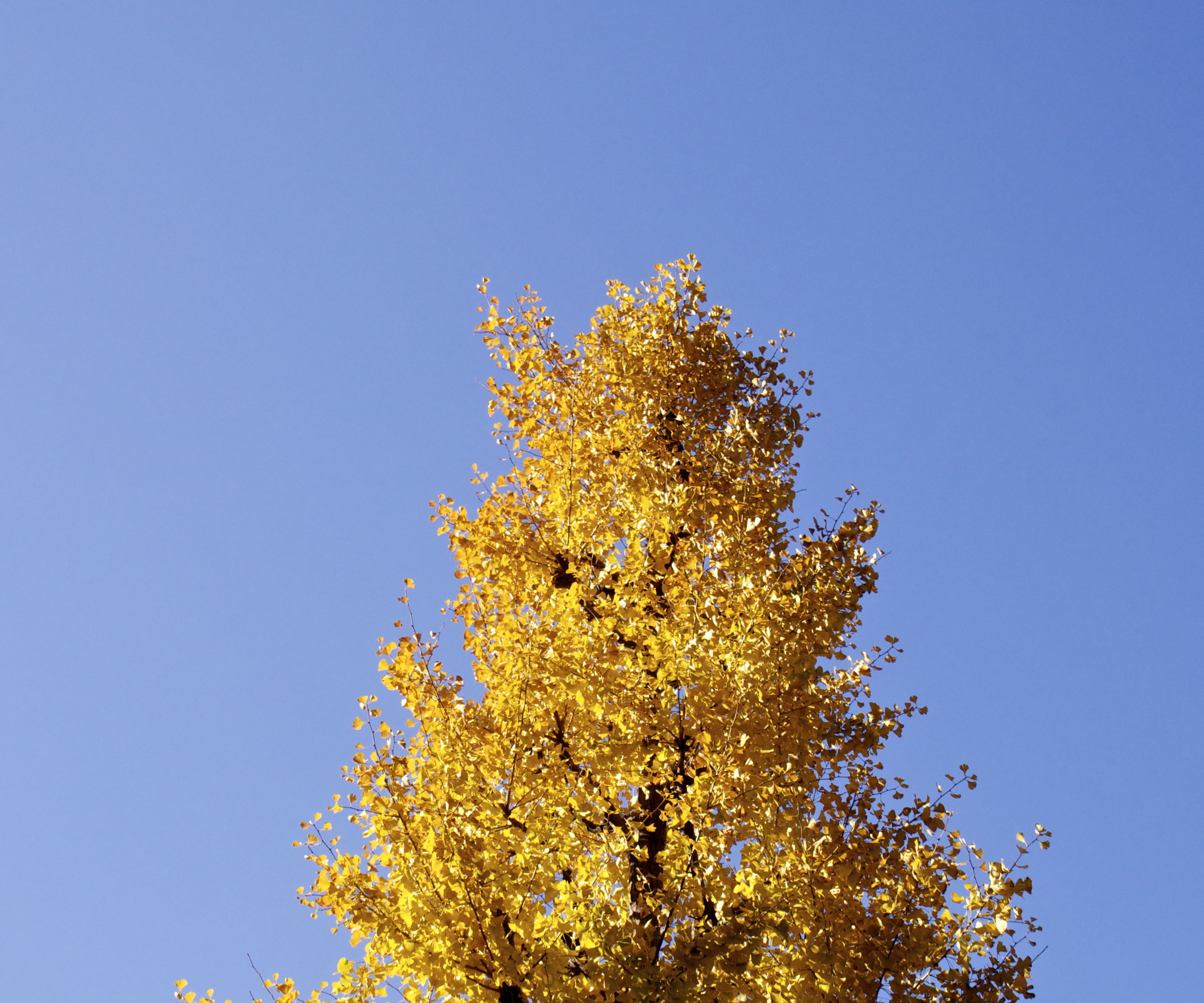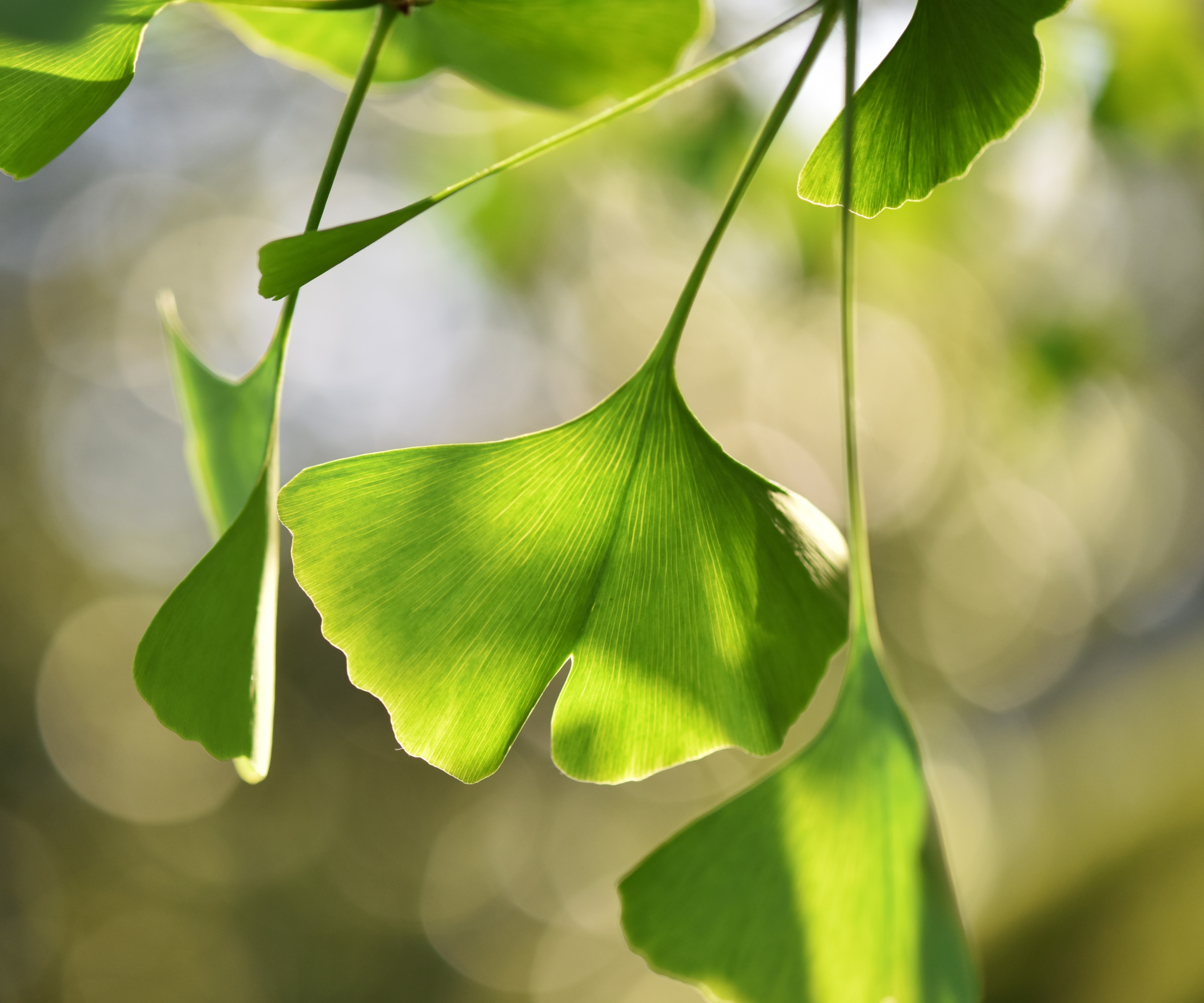
Ginkgo trees are often described as 'living fossils' or 'dinosaur trees', celebrated for their impressive age. Fossils of ginkgo tree leaves have been discovered that date back more than 200 million years. It is hard to contemplate that a tree has existed in its current form for that amount of time, and it is a remarkable testament to tree evolution and adaptability.
Ginkgo biloba, commonly referred to as the ginkgo tree or maidenhair tree, is deciduous, notable for its attractive fan-shaped foliage that changes color in the fall to a wonderful golden yellow, as seen in the image below.
So, if you are looking for backyard ideas this year, or perhaps you want to choose a new tree in the garden borders, why not consider adding the oldest living tree specimen to your collection? With attractive foliage and form, this tree is sure to add interest to your outside space, and what's more, it is sure to be a good conversation topic for garden visitors during barbeque season.

How to grow a ginkgo tree
Growing the 'living fossil' tree in your backyard is sure to add structure and color to the garden borders and, fortunately for gardeners, this deciduous tree is hardy and relatively low maintenance. Here, we share expert advice on how to grow a ginkgo tree.
Gingko tree considerations

'Ginkgo species once covered the earth, but as the climate cooled and dried their range slowly contracted, isolated but protected for millions of years in the mountains of central China,' says Terry Huang, plant expert and Director of Living Collections at South Coast Botanic Garden in the Los Angeles area.
Ginkgo trees grow best in 'temperate climates where summers are warm and damp and winters are pronounced,' Terry adds. Growing best in US hardiness zone 4 to US hardiness zone 8, ginkgo trees are happiest in full sun and with soils that are well-draining. However, they are 'tough trees and can tolerate less-than-ideal conditions in heavily urbanized areas,' Terry says.
When planting your tree be warned that ginkgo trees can reach up to 80 feet tall, so ideally plant away from the home, where the tree is free to grow tall and wide. However, smaller varieties can be grown in containers, which should be a consideration for those with smaller yards.
Due to their tolerance of varied conditions, they are 'great candidates for bonsai trees,' Terry says, so even those with small terraces or balconies can have a go at growing the 'living fossil' tree in miniature form. While there are many bonsai tree types to pick from, learning how to grow a ginkgo tree in bonsai form would be a fun summer project to try.
Gingko biloba has fantastic fan-shaped leaves that turn a brilliant yellow color in the fall. This tree is sure to make your landscape stand out! Growing best in US Hardiness zones 4 to 8, this 'living fossil' tree is undoubtedly one of the most distinct and beautiful of and can be found in botanical gardens all around the world.
Growing advice for gingko trees

- Soil: 'The ginkgo tree, with its unique fan-shaped leaves that turn brilliant yellow in the fall, is a standout ornamental tree for any landscape,' says Alex Kantor, owner of Perfect Plants Nursery. Fortunately for gardeners and homeowners, these trees thrive in a variety of soils and 'can tolerate urban conditions,' Alex adds. 'They can adapt to most soil conditions, including clay or poor soils, so gardeners needn't worry if their soil is right for this tree.'
- Light: For the best results, 'position these cold-hardy trees in either a full sun or partial sun area of the backyard,' Alex says. 'Remember that ginkgo trees can grow up to and over 60 feet tall and 40 feet wide, so find the right space in your yard for this sizeable tree, preferably a spot that is open where they can bathe in the sunshine.'
- Watering: Consistent watering is important for your ginkgo tree especially during the first year after planting and during hot or dry periods. Keep the soil moist but ensure that the ground is not waterlogged. The tree will gradually become drought-tolerant as it matures and sends down roots.
- Fertilizing: It is recommended that you feed young ginkgo trees in the first few years after planting. This can be done in the springtime, using a suitable tree fertilizer, such as these shrub and tree feed spikes from Walmart. Always follow the product label instructions, diluting or applying as necessary. Once mature, your ginkgo tree will not need to be fed.
- Pruning: Ginkgo trees will typically maintain a narrow form while young, but tend to grow fairly wide as they age, often considered one of the best trees for shade, particularly in warmer zones. If you are keen to maintain a narrow form in a smaller backyard, prune your ginkgo tree to keep a single leader - or trunk - with only select upward branches retained. 'Ginkgo trees are known for their ability to tolerate heat, air pollution, salt, and confined spaces, making them a common sight in cities worldwide,' Alex adds. 'They can grow at a rate of 1 to 2 feet per year, so while pruning is not frequent, occasional trimming is important.' Pruning is best done in either the spring or fall.
FAQs
Can I grow a gingko tree in a pot?
Ginkgo trees can be grown in pots, which is a good option for those with smaller yards, patios or terraces. It is best to use a variety that is smaller in size and more suited to container growing. Ginkgo Biloba 'Pendula', for example, reaches no more than 8 to 10 feet tall, and so it more suited to growing in a pot. Remember, as with all pots, to feed and water regularly through the growing season.
Adding a ginkgo tree to your backyard is sure to add interest and drama to your borders, particularly during the fall when its foliage turns golden-yellow. Consider growing other plants for fall color, such as the red twig dogwood, and watch your outside space glow yellow, orange and red later this year.







